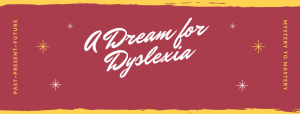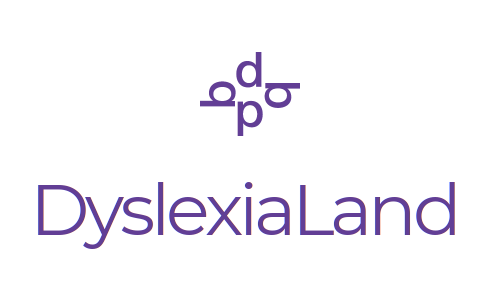A Dream for Dyslexia: Past, Present and Future

A Dream for Dyslexia: Past, Present and Future
By Cheri Rae
We celebrate the gifts of the season. We embrace our long-held traditions and leave space to make way for new discoveries. And most of all, we open our grateful hearts to possibilities, to renewal, and the joyful promise of the days ahead. With those thoughts in mind, a small offering, a mix of muse and magic, reality and hopeful wishes at this special time of year.
The Nightmare of Dyslexia Past: Mystery
In not-so-long-ago-times-gone-by, the child who struggled to read, write and spell was an outcast, with talent unrecognized. Think Thomas Edison, banished from his third-grade class or Ansel Adams, tossed from a succession of private schools—both ended up homeschooled by their mothers. More recently, sports star Tim Tebow, identified early with dyslexia, was simply homeschooled from the beginning–and allowed to participate in sports. Others were not so lucky, and endured the indignity of “public education” by those who considered their struggles a complete mystery in times gone by. They stayed as long as they could, but dropped out of school to end the struggle. Think Cher, Whoopi Goldberg, Sir Richard Branson, John D. Rockefeller. And then there are those we encounter in our communities who share their stories. A few examples:
A few years ago, the high school audience was packed to capacity for a community showing of Harvey Hubbell’s film “Dislecksia.” The lights came up and it was time for the question-and-answer session. An elderly woman raised her hand and struggled to her feet. “I am 83 years old,” she declared. “I always wondered what was wrong with me. But now I know nothing was wrong, I just have dyslexia. I’ve always been creative, but never could read very well, and now, finally, it’s all clear to me. Thank you so much!”
My long-retired friend recently mentioned that he finally figured out—from listening to me talk about dyslexia so much—that he is dyslexic. This brilliant engineer who worked in the space program as an optical engineer, noted, “I’ve always been able to make or fix just about anything, but I’ve never been able to spell, and I’ve always been embarrassed about it. And baffled. Now I know why: I have dyslexia.”
The young man walked into the library for a monthly “Dyslexia Dialogue.” He crossed his arms across his chest, looked uncomfortable, as though his wife had dragged him there. She spoke up, seeking help for their nine-year-old daughter who is struggling in school. As the positive group dynamic tool shape, he seemed to warm up, especially as an older gentleman spoke movingly about his own dyslexic journey. He remembered when he was in third grade, “I was in horror when I realized how many more years I had to be in school.”
Suddenly, the young man blurted out, “My whole life, everyone, every single teacher, said that I would never amount to anything. Just because I couldn’t read and had so much trouble in school.” Turns out, he runs his own business as an electrician, and as a committed husband and loving father, he’s proved them all wrong.
Stories of unidentified dyslexia and unnecessary suffering due to lack of knowledge are legion. Throughout their long lifetimes, these adults have carried the wounds of the past. We make excuses and claim that no one knew—even though research shows that’s not the case, and dyslexia has been known for well over a century. What I know for sure is that in more than a decade of dyslexia advocacy, not one single dyslexic person—from second graders to a nonagenarian–has ever described their school experiences in a positive way.
This practice has to stay in the past.
The Reality of Dyslexia Present: Misunderstanding
Oh, how we’re trying. Thanks to the convergence of social media and the national grassroots movement begun not so long ago by Decoding Dyslexia—with its motto of Educate, Advocate, Legislate—dyslexia has been in the news and new laws on the books more than ever before. More ways of connecting—in person and online—make it possible for parents to connect with each other in ways never dreamed of in the past. We’re working hard to tell our stories, to influence and convince decision-makers and talking up the accomplishments of successful dyslexics. Just think, we say, of the rewards of doing the right thing for these children. You will look good as they make gains. At the same time, we avoid dwelling on the dark side, the difficulties and yes, even the tragedies of wasted lives for no good reason except a lack of attention to what matters. And we run ourselves ragged in the month of October, Dyslexia Awareness Month—believing it is our one time of the year that the public will listen, the media will bother, when we deal with dyslexia every singe day.
The upside to all of this is that parents are learning about dyslexia, the science of reading, appropriate teaching methods, the need to support strengths and provide opportunities for academic success—all with an eye on building emotional resilience and self-advocacy skills. We are banding together at the local level, creating our own organizations and non-profits, developing alliances that transcend boundaries,raising our voices, standing up and being counted.
The downside is that the education establishment continues to resist. In far too many cases, they still don’t want to use the word “dyslexia,” they consider dyslexia just an issue of reading without realizing it’s a totally different way of thinking and processing, and worst of all, they force parents to into an unexpectedly adversarial position: Fighting for the proper use of our taxpayer dollars. Fighting for the educational rights and opportunities of 20 percent of our children. Fighting over indefensible practices like warehousing dyslexic high school students in hopeless situations without providing a pathway to building their academic skills—consigning them to lives of poverty and unfulfilled potential.
They even figure out how to keep fighting: Pass a dyslexia law, they figure a way to make it just a “guideline,” not a requirement (as is the case in California). Or ignore the laws altogether and take your chances, as happened for far too long in Texas, until an enterprising journalist wrote an investigative report exposing the worst practices and forced much-needed change.
The heartbreaking image remains: the father who spoke before the school board in my district this summer, pleading for help for his now-5thgrade dyslexic daughter to receive a proper education. He was reduced to tears as he recounted how the years of advocacy have stressed his family to the limit—and still she struggles in her classwork, and it’s taking a serious toll on her emotional health and behavior. As he tried to regain control of his emotions, the school board members and top administrators, including the superintendent, sat stone-faced. Not one of them–entrusted by the public to make sure our schools are doing the right thing–asked a single question or offered a word of assistance.
Appropriate terminology of this educational ignorance might include denial of services, dereliction of duty, or outright unlawful behavior. In the spirit of the holidays, we’ll call this a “misunderstanding.” Still occurring, right now, 18 years into the 21stcentury.
A child’s zip code or economic status should never be the ticket to dyslexic success. But too often it is. And there is no excuse.
The Dream of Dyslexia Future: Mastery
From nightmare to dream in DyslexiaLand, considering how it could be, how it should be for every dyslexic child, student and adult: When we consider dyslexia a source of creativity, innovation and strength. No need to get into the often controversial conversation of whether or not dyslexia is a gift—let’s just acknowledge that it’s a difference in learning that demands support, understanding and yes, a bit of patience to appreciate its characteristics. We will matter-of-factly create dyslexia-friendly conditions, in our schools, our houses of worship, our communities, our workplaces and we will master the lessons that have taken too long to learn. And we will do it, at long last, with gentle grace that comes from doing what’s right.
When we don’t have to point to the vast numbers of rich and famous dyslexics to prove what we shouldn’t have to prove—that dyslexics are smart, capable and worthy of educational opportunities.
When we parents of dyslexics can send our children to school knowing that they will be taught to read, write and spell with a structured, direct, multisensory approach by a competent, experienced and thoughtful teacher who is well-versed in addressing the multiple aspects of achieving competency in this important skills. And that their emotional well-being will be seen as equally important as their academic success.
When project-based, cooperative and creative assignments that require out-of-the-box thinking take the place of rote learning and worksheets, and an appropriate education for dyslexic students won’t be considered special or require accommodating. Or begging
When we know that our children will flourish in environments that have been systematically denied them for an unconscionable length of time for no good reason except the cost. At long last, the cost of not providing a proper education for our sizeable dyslexic population will be far too great to even consider it.
When we never again have to have the indignity of the conversation about whether or not dyslexia exists. It does. It did. It will continue.
All we have to do is recognize, accept and appreciate dyslexia. It’s been a long time coming, but what a gift for the ages.


